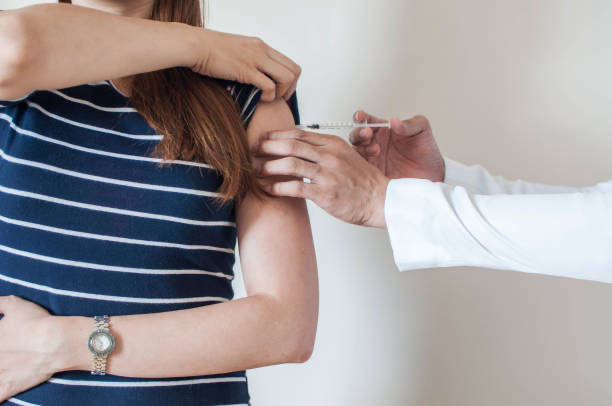
People in the West Midlands are being urged to check that they, and all family members are up to date with their MMR vaccine, following confirmation that measles is circulating in the region.
Since 1 October 2023, there have been 19 confirmed cases in the West Midlands, with an increasing number of likely cases.
The UK Health Security Agency West Midlands is working with local authorities and local NHS partners to make sure that anyone in the region who needs an MMR vaccination is aware that there is an increased risk of catching measles, following confirmed cases in Birmingham, Solihull and Coventry. Paul Fisher, UKHSA West Midlands Consultant in Health Protection, said:
“We are currently seeing cases of measles across the country, including the West Midlands region. Measles is very infectious and can spread rapidly among communities, such as schools, if people have not had at least one dose of the MMR vaccine.
“Uptake of the MMR vaccine in the West Midlands is much lower than the 95% needed to protect the population, which is giving this serious disease a chance to get a foothold in our communities, so it’s really important that anyone who hasn’t already had two doses of the MMR vaccine by the time they started full time school, contacts their GP surgery for an appointment to get vaccinated as soon as possible.
“While most people will recover completely within a couple of weeks, the virus can cause very serious illness – sometimes this can leave permanent disability and it can even be fatal. People in certain at-risk groups, including babies and small children, pregnant women, and people with weakened immunity, are at increased risk of complications if they catch measles.”
The individuals currently affected are all recovering, but hospital treatment was necessary for a few. Most of the measles cases we’re seeing have had no doses of the MMR vaccine. One dose of MMR is at least 95% effective in preventing measles and the second dose gives maximum protection.
Symptoms of measles appear 7-10 days after contact with the virus and include:
- cold-like symptoms such as runny or blocked nose, sneezing and cough
- red, sore, watery eyes
- high temperature (fever), which may reach around 40OC / 104OF
- a non-itchy, red-brown rash usually appears 3-5 days later (sometimes starts around the ears before spreading to rest of the body), spots may be raised and join to form blotchy patches – which may be harder to see on darker skin tones
- small white spots may appear inside cheeks and the back of lips (for a few days)
Paul added: “If you think you could have measles, it’s really important to stay away from areas where you could come into contact with lots of other people – especially vulnerable patients in hospitals, care homes or other healthcare settings.
“If you have the symptoms of measles, it is essential that you don’t just turn up at your GP practice, walk in centre or other healthcare setting. Instead, you should contact your GP or NHS111 for advice. If you do need to visit your GP practice, walk-in centre or other healthcare setting, please phone ahead so arrangements can be made to prevent other people being infected.”
The MMR vaccine is part of the routine NHS schedule of childhood vaccines administered: 1st dose just after the child’s first birthday 2nd dose at 3 years 4 months and certainly before children start school full time Paul Fisher added:
“The MMR vaccine is free and a safe and effective way of protecting against measles, as well as mumps and rubella. If children and young adults have missed these vaccinations in the past, it’s important to take up the vaccine now from GPs, particularly in light of the recent cases. Check your child’s Red Book to see if they’ve received MMR vaccinations as scheduled or check with your GP surgery if you’re unsure. It’s never too late to get vaccinated against measles.”














Comments
Add a comment